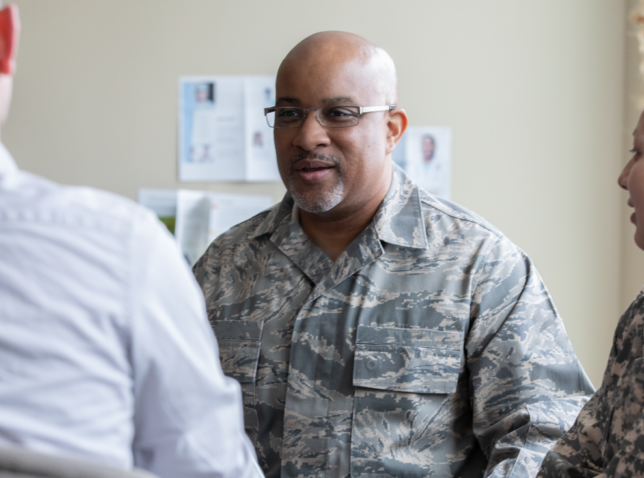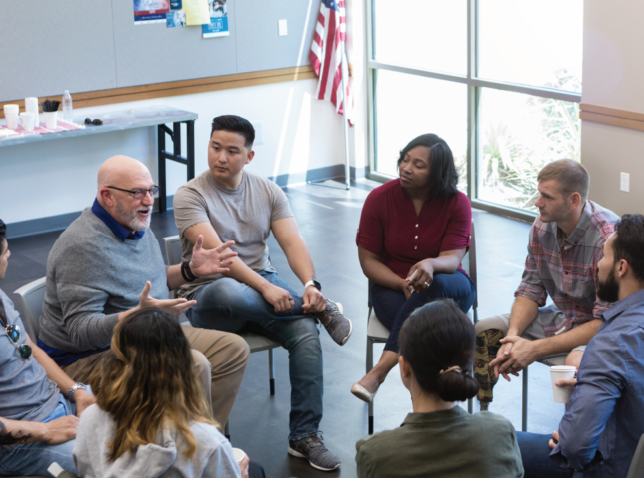Become a Living Organ Donor, One of the Greatest of All Gifts
I’m the recipient of a kidney from a living donor. One of my friends donated his kidney to me in March of 2017. Since that time, I’ve worked to spread the word on the importance of living organ donation. Without question, it is one of the greatest gifts one person can give to another.
My kidneys were failing, and I was getting close to needing dialysis. It was clear that a transplant would be necessary. Having been diagnosed with a genetic condition called polycystic kidney disease (PKD) as a kid, and having my father go through it as well with his own PKD, I always knew I was at risk. We had always thought my sister could be a donor for me, as she doesn’t have the disease, but during the initial screening she was disqualified. The screening for potential living donors is very strict.
Suddenly, I was in a bind. I was placed on the list to receive a kidney from a deceased donor, but that has a significant wait time between three to five years. We clearly needed an alternative, so my whole family was tested for a match. My aunt was qualified as a donor, but because I’m well over six feet and my aunt is five-four, the surgeon suggested I search for another donor.
Once we realized that no one in the immediate family was an appropriate match, I created a Facebook page to let my friends know that I was in need of a kidney. Many people stepped up, and maybe four or five ended up getting tested, though most ended up being disqualified for a variety of reasons. Thankfully, my friend, Andy, made it through the screening and he was able to do it.
I’ll always feel indebted to Andy, and I’m so thankful for him doing this. Not only did he donate a kidney, there was a two-week recuperation after the surgery, as well as a lot of upfront testing that he had to go through. He had to fly in from Michigan three or four times.
Everything that has happened to me since the transplant is because of Andy’s gift. I just came back from skiing in Utah. There is no way I could have done it if I was on dialysis.
April is Organ Donor Awareness Month, and I encourage everyone to think about becoming an organ donor. To help you in your thinking, I want to share five things about living organ donation that you might not know:
Living donation does not change life expectancy. Studies have shown that the life expectancy of living donors is the same as those who haven’t donated. Donors are screened so carefully, all paid for by insurance. I had several friends that appear to be the absolute picture of health, but they were disqualified as donors because of some minor health issue they didn’t even know they had.
Being a living donor is a tremendous gift. People are suffering because of kidney failure, and a transplant can help transform or save their lives. It’s an altruistic decision. Some may say that, as a donor, you really have a sense of happiness because you’ve helped someone like that, and I believe that’s true.
There are many people awaiting a kidney. Many of us have all checked off the box for “organ donation” on our driver’s license, but it might not be enough. Kidneys from a living donor last longer than those from a deceased donor. First of all, living donors are in excellent health, while deceased donor kidneys may have had compromised health, or have had tissue damage.
One donor can trigger a chain of life-saving transplants. Doctors work hard to make the best matches, and there are often situations were one family member wants to donate for a loved one, but they aren’t a good match. Sometimes they may be a match for someone else who needs a kidney. In that case, a whole chain of donations can be set up. An altruistic donor, who is giving with the idea that the kidney can be placed anywhere, can be the key to making a chain of donations possible. Instead of helping a single person, a donation can help a lot of people.
Remember the story about my aunt, not being able to donate her kidney to me? Well, she went ahead and made a donation altruistically. She doesn’t even know where her organ went or who received it. We are all really hoping that the recipient comes forward someday, but for now we are satisfied that she helped a stranger in need, which in some ways expresses our thanks to Andy for his gift to me.
It takes a special person to become a living donor. There are a lot of physical exams and blood tests, all of which take time, effort and (in Andy’s case) travel. It’s not an easy process, but it is important, and it might be a life-saving gift for someone. I hope you will consider becoming a living donor.
Take a few moments to register as a donor. It’s fast, easy, secure, and painless. Also, please explore the many activities around National Donate Life Month. For example, on National Donate Life Blue & Green Day, where people are encouraged to wear blue and green, hold events and fundraisers, and partner with local restaurants, malls, media, and community organizations in an effort to promote the success of organ, eye and tissue transplantation.
This post is for informational purposes only and should not be considered as specific financial, legal or tax advice. Depending on your individual circumstances, the strategies discussed in this presentation may not be appropriate for your situation. The information in this material is not intended as tax or legal advice. Always consult your legal or tax professionals for specific information regarding your individual situation.
3167079CC_JUL22






